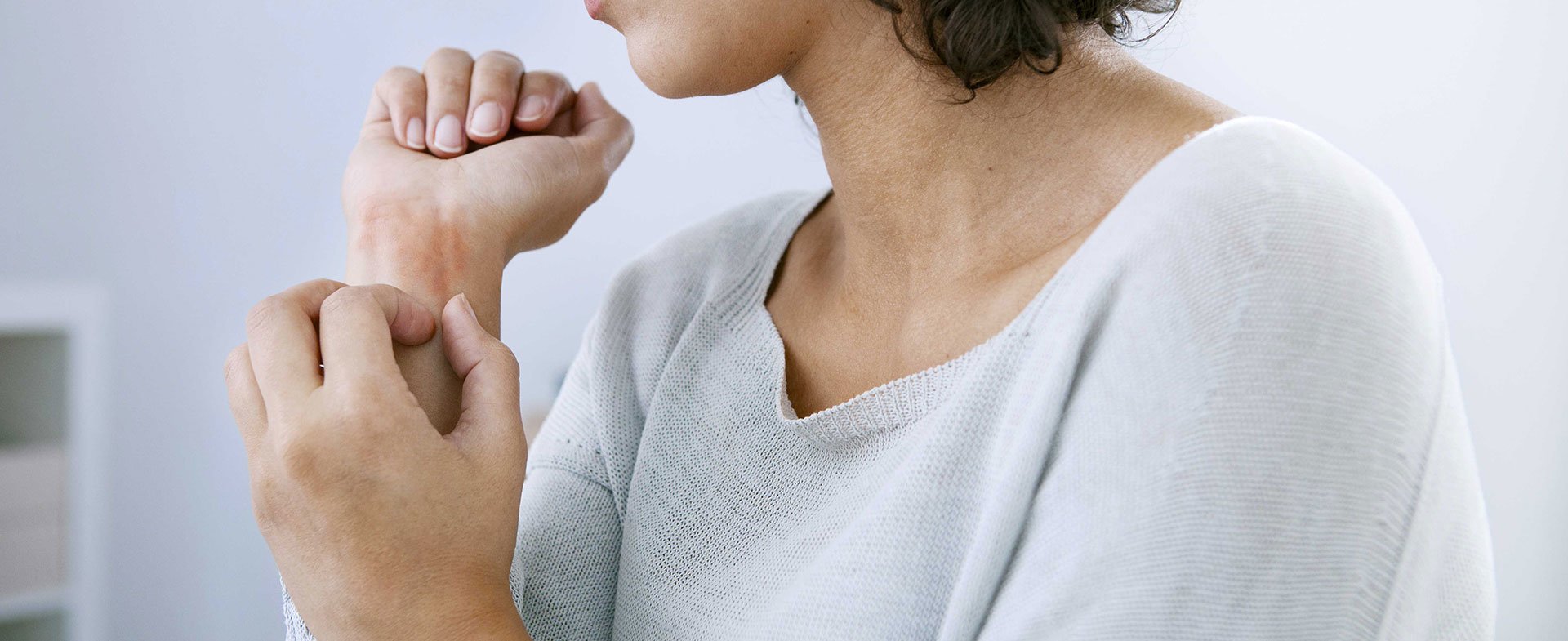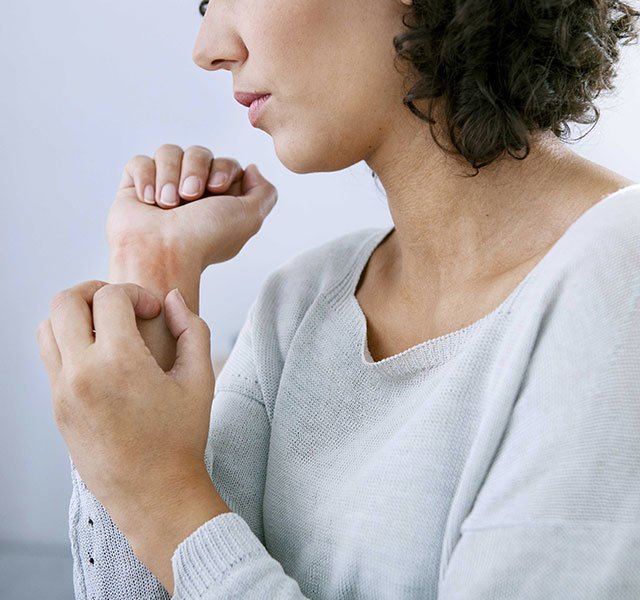As the months start to get colder, many of us find that our skin tends to become dry and even a little itchy. However, if you notice an itchy rash that appears on your skin and doesn’t seem to go away, a doctor should look at it to determine if it is something more than winter itch.
Eczema, or atopic dermatitis (AD), is a chronic skin rash that usually first appears during childhood. Marla Jahnke, M.D., a pediatric dermatologist at Henry Ford Health, says not to worry about your child getting this rash at school or on the playground. “Eczema is not contagious,” Jahnke says. “We see it more commonly in patients with a family history of the disease or other ‘atopic diseases’ including asthma and seasonal allergies.”
Eczema presents itself in different ways depending on age. In babies, for example, it usually appears on the cheeks, ankles and backs of the arms. In older children and adults, it often appears in the creases of the arms and legs, neck, wrists and ankles. There are different types of eczema as well but most cases appear as dry, red patches of skin.
If you or your child has eczema, it may be mild and go unnoticed until some outside factor triggers a flare up. Weather changes, environmental allergies, illness or skin infections commonly worsen eczema. For most, the winter months are the worst time for eczema but some people flare with any change in the weather.
Options for Treating Your Eczema
Since it’s a chronic illness, there is no cure for eczema. For most patients, they will go through periods where their eczema is improved and periods where their flare ups are more severe. “This disease can be extremely stressful for patients and their families,” says Jahnke. “The skin care regimens to control eczema require diligence and can be burdensome, while the constant itch and frequent scratching may frustrate patients and caregivers.”
Fortunately, doctors have ways to improve the appearance of the rash and decrease the itching. There are several different treatment methods used:
- Moisturizers and gentle skin care products. These products work to control eczema and are extremely important in treating eczema-prone skin. Ask your doctor for recommendations. Jahnke says, “Thicker ointment or cream-based moisturizers are most helpful. The most important time to apply them is after bathing.”
- Topical medicines. If you or your child is going through a more severe flare up, moisturizers alone may not be enough and topical steroids or other non-steroidal options may be recommended to reduce the inflammation of the rash and relieve itch.
- Immunosuppressants or phototherapy. In very severe cases, special types of light treatments can be prescribed in the doctor’s office or oral or injectable medications that suppress the immune system may be used.
“There is no one size fits all approach to treatment,” says Jahnke. “Your doctor will recommend what is best based on patient age, past medical history, symptoms and severity.” Some people find their condition gets better as they get older, however, eczema may continue into adulthood.
To find a doctor or dermatologist at Henry Ford, visit henryford.com or call 1-800-HENRYFORD (436-7936).
Dr. Marla Jahnke sees patients at Henry Ford Medical Center – Troy and Henry Ford Medical Center – Farmington Road.



